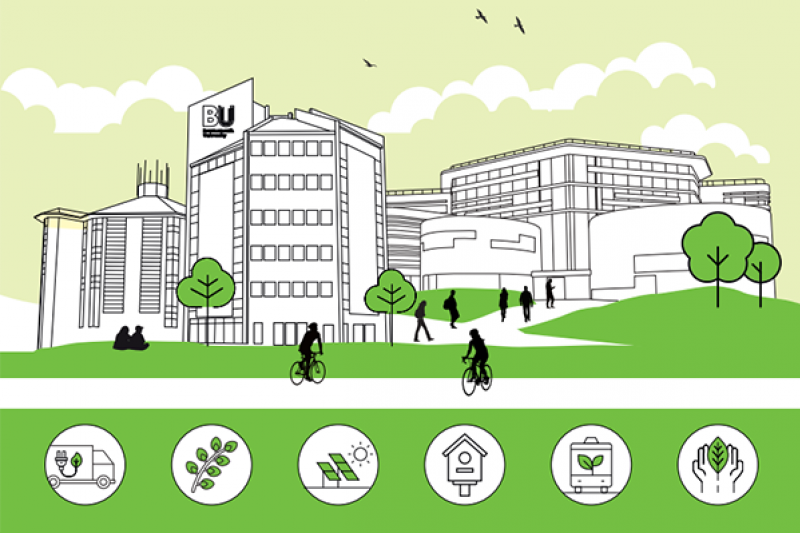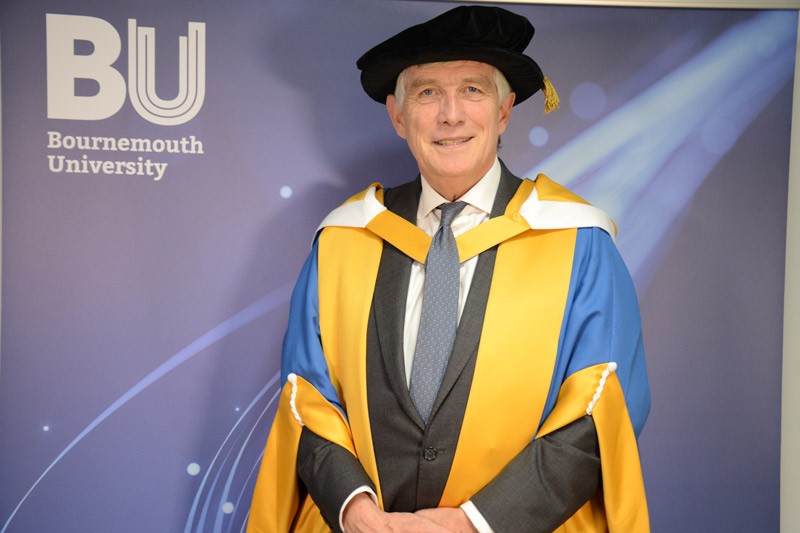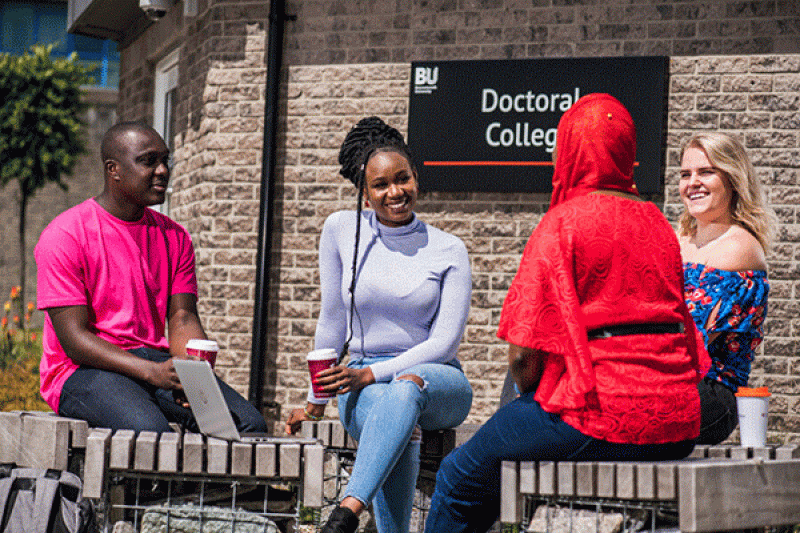
BU has set a target of achieving net zero Greenhouse Gas (GHG) emissions by 2030/31.
Our new Climate and Ecological Crisis Action Plan sets out the plans to reduce emissions, as well as encouraging staff and students to become more sustainable in their everyday lives.
BU has already cut GHG emissions by 53 per cent between 2005/6 and 2019/20.
This has been achieved by installing zero or low-carbon technologies, building a more efficient estate and engaging staff and students to adopt more sustainable lifestyles, as well as the decarbonisation of the national electricity grid.
All of our new buildings and refurbishments meet BREEAM sustainability standards and in 2019/20, 5% of electricity and 12.5% of heat used on BU’s campuses came from on-site renewables.
Central to the plan is educating us about the crisis and, crucially, what we can do to help cut emissions through our personal and professional lives.
BU’s research will also continue to inform and influence how society can reduce global temperature increases and protect our natural environment.
Alongside the efforts to cut emissions, BU’s climate change risk assessment also includes adaptation measures to help prepare the business for expected climatic shocks, such as increased flooding, heatwaves and wildfires.
Our Vice-Chancellor Professor John Vinney said: “BU is rightly proud of its track record of cutting carbon emissions and our plan sets out how we will continue on this journey.
“Universities have an essential leadership role in tackling this crisis and we will ensure the next generation of students have the skills and knowledge to thrive in a decarbonised society. We recognise 2021 is a pivotal year for the environment, with the international community coming together for COP26 in the autumn and we will play our part in delivering a healthier and better world for all.”
Find out more about the plan on the BU website.



